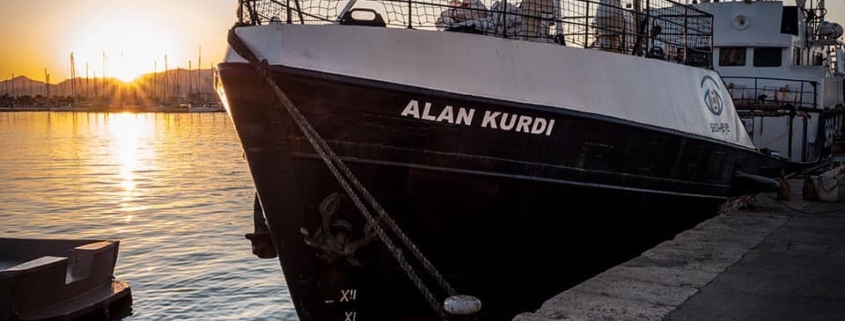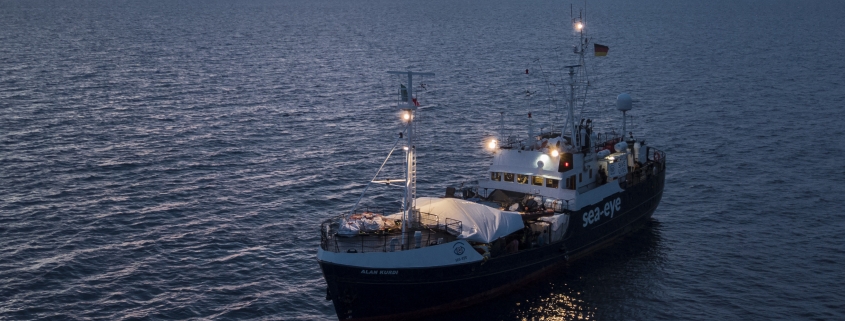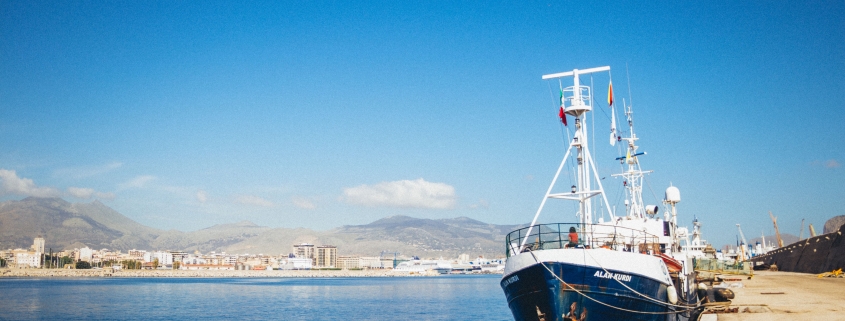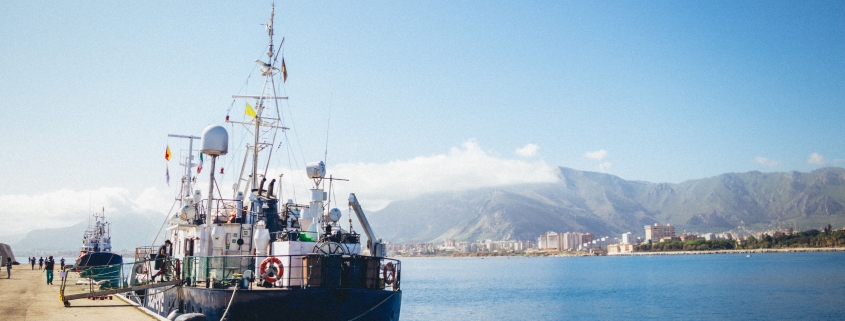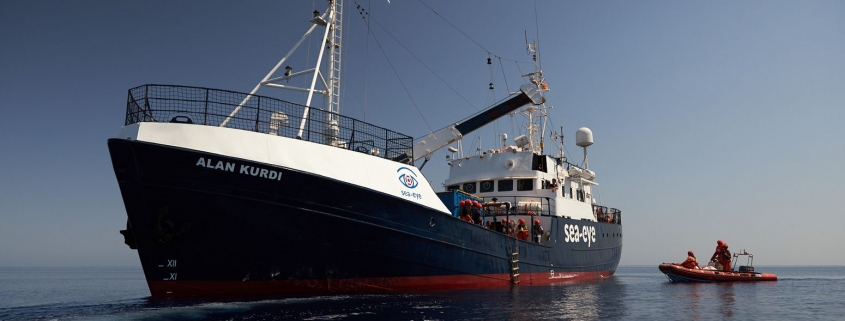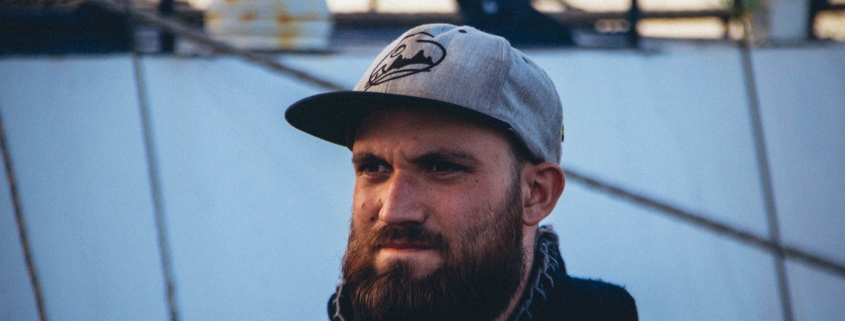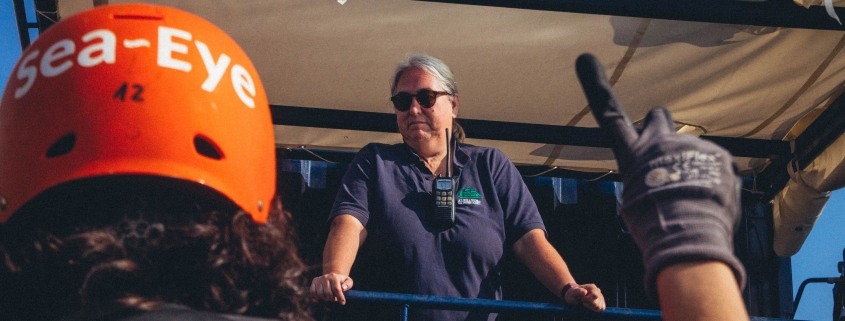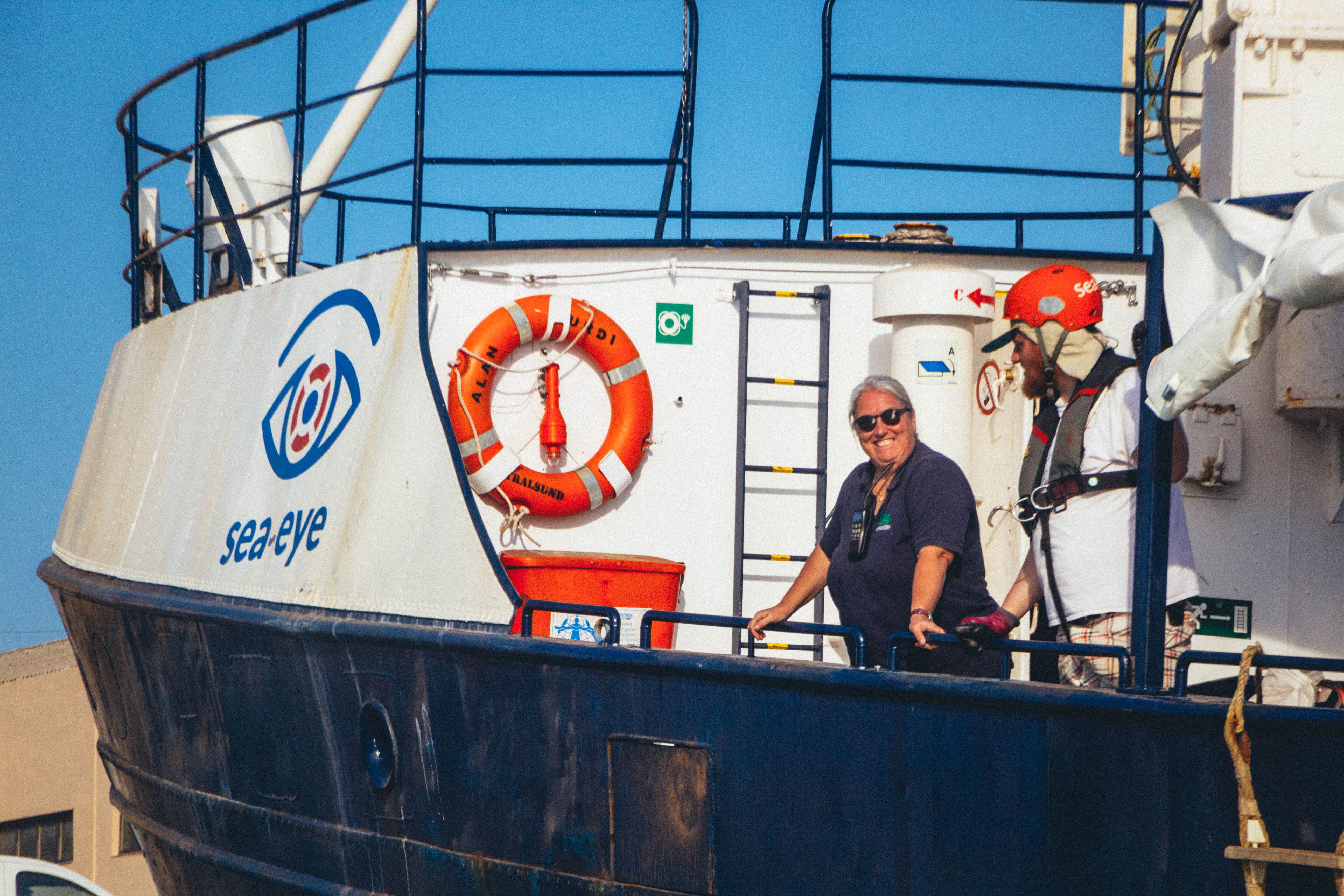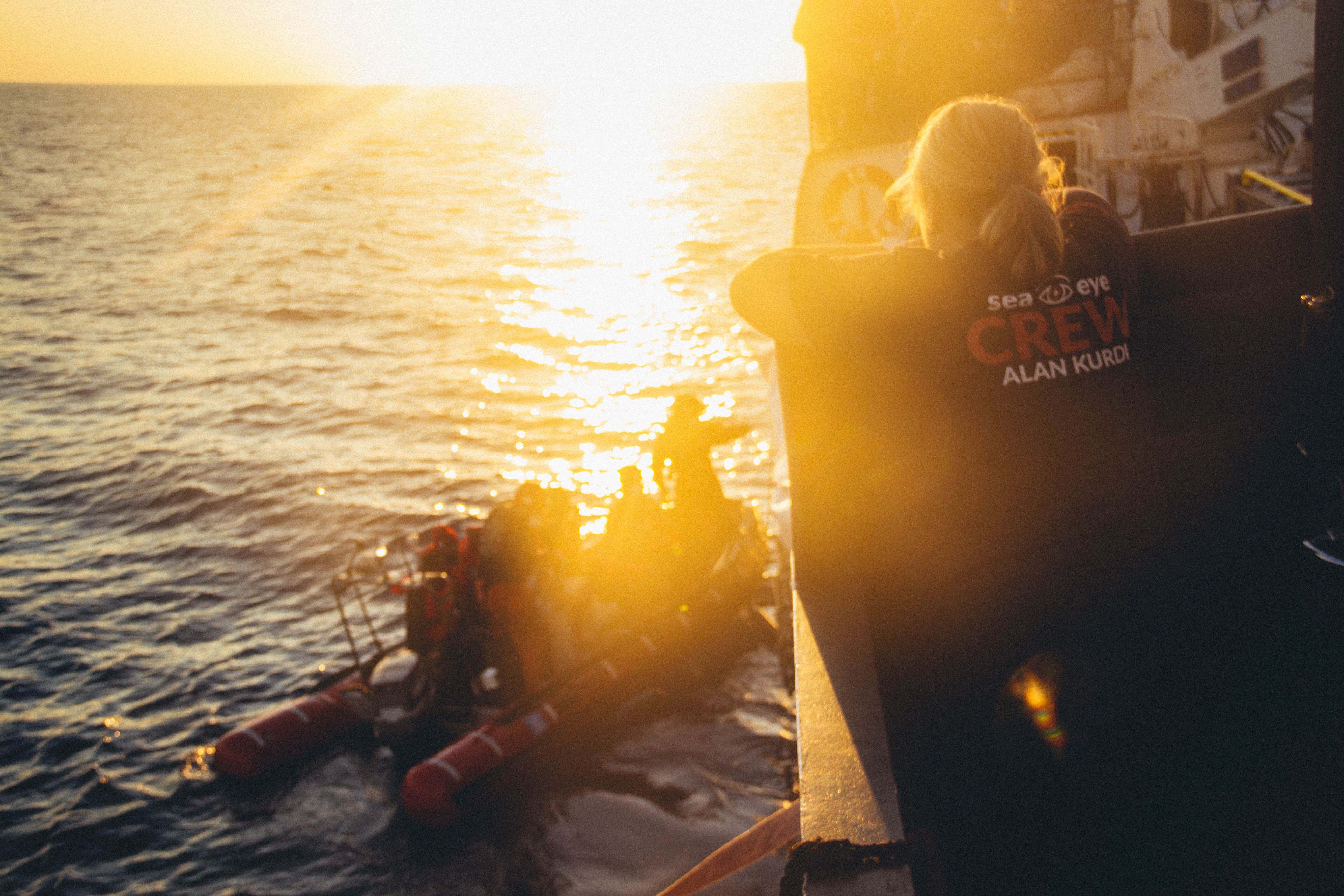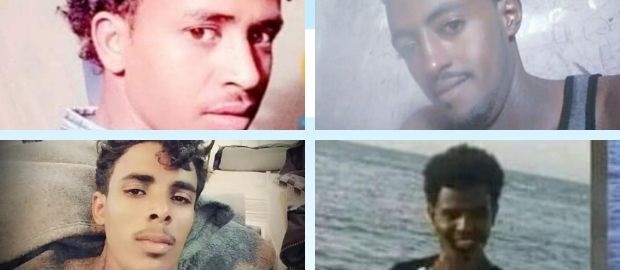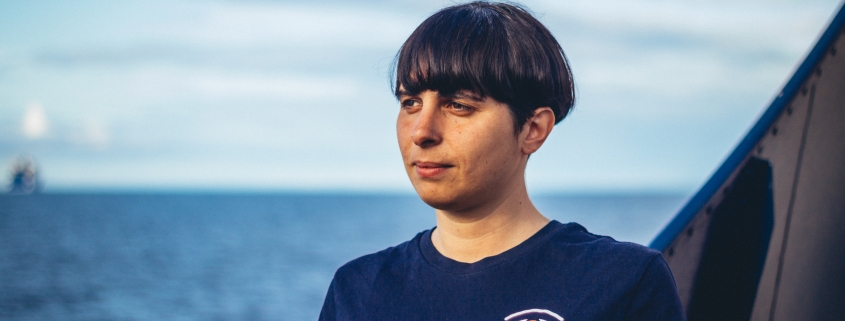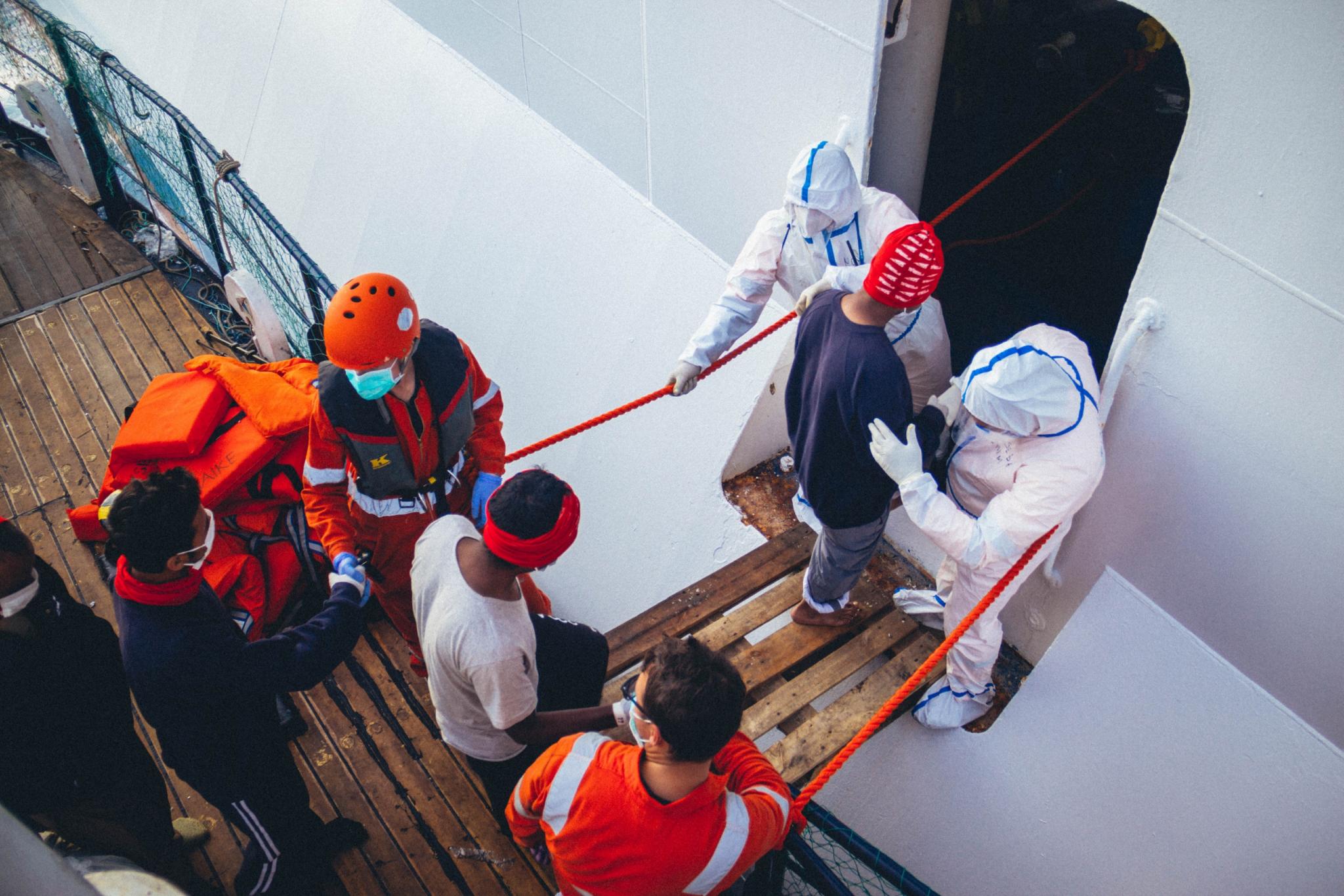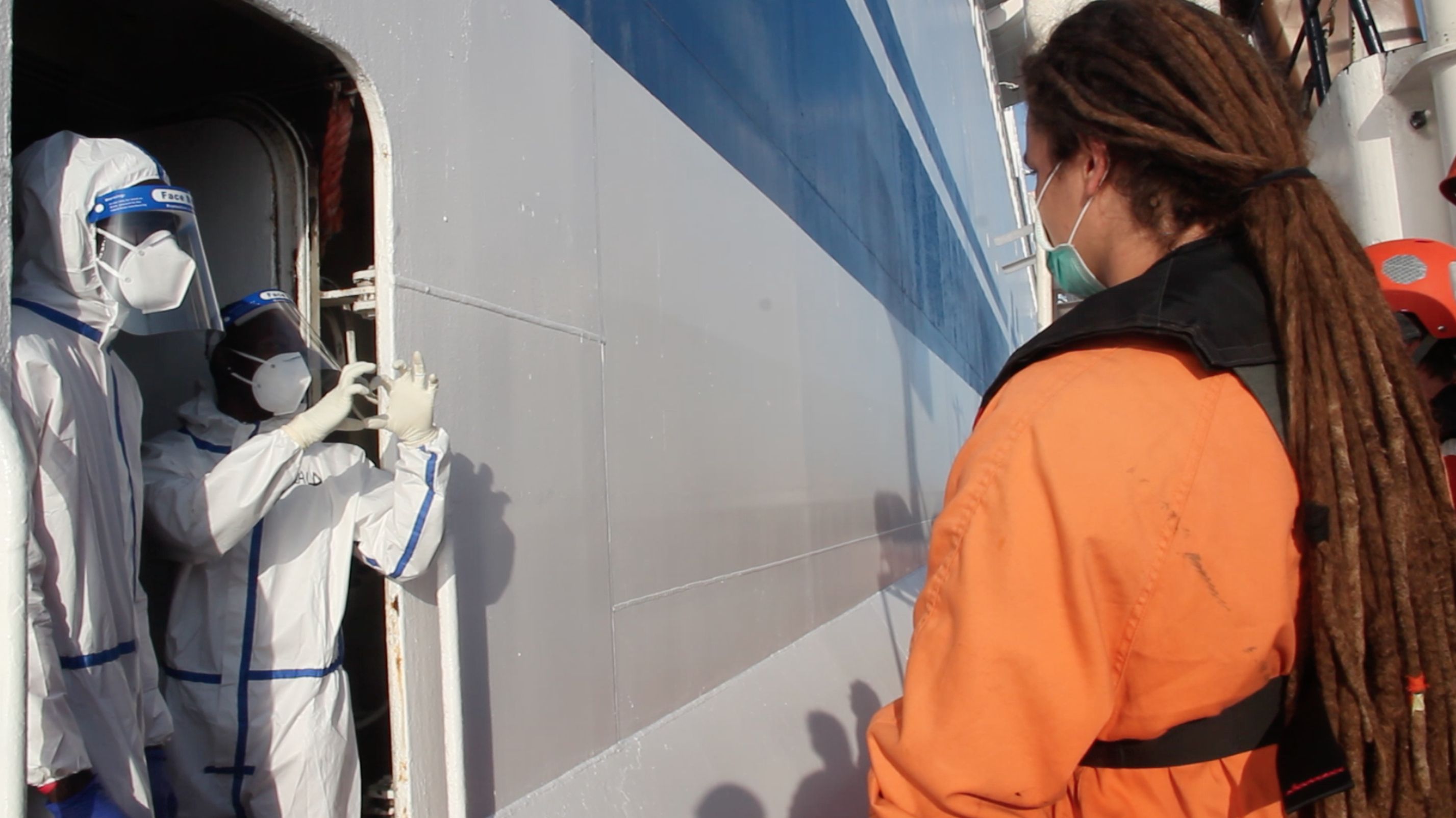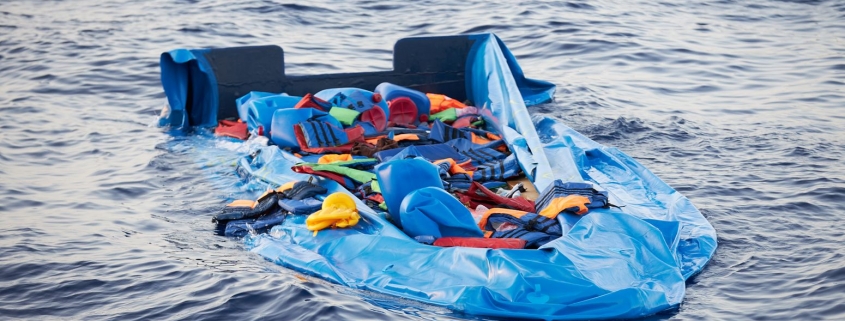The Italian authorities had previously detained ALAN KURDI
- Sea-Eye files lawsuit against Italian Ministry of Transport and Palermo Port Authority
- Legal opinion by law of the sea experts refutes Italian view
- Italian Ministry of Transport counteracts international law
The Sea-Eye ship ALAN KURDI is currently in the Spanish port of Burriana. Previously, it was held in Palermo for over seven weeks. Sea-Eye has therefore already had to cancel three rescue missions. The Italian coast guard detained the ship after the rescue of 150 people on May 5, 2020 in Palermo, citing “serious safety deficiencies”. The Italian authorities later also detained Sea-Watch’s rescue ship the SEA-WATCH 3, the OCEAN VIKING of SOS Mediterranée, as well as the AITA MARI operated by Salvamento Marítimo Humanitario, on similar grounds. Sea-Eye has now filed a lawsuit.
“In our opinion, the decision made by the Italian authorities has to be considered illegal and creates legal uncertainties that aim to prevent further operations by ALAN KURDI. Sea rescue is an obligation under international law,” said Gorden Isler, Chairman of Sea-Eye e. V.
The Italian coast guard criticized that the NGO’s ships did not have enough sanitation and sewage systems and that they did not have sufficient safety certificates to regularly save so many people and bring them to an Italian port safely and in compliance with environmental regulations. The German flag state authority (BG Verkehr), which reports to the German Federal Ministry of Transport, however, negated this in the case of ALAN KURDI, immediately after the ship was detained in May 2020. BG Verkehr repeatedly confirmed that ALAN KURDI had the necessary safety certificates and also complied with the relevant environmental standards. As for the fact that there were significantly more people on board after the case of emergency of a rescue of people in distress at sea, the exceptions to environmental and safety regulations expressly included in the relevant international regulations to save life at sea took effect.
“It cannot be the case that a conflict is being constructed in which civilian actors now have to argue with state actors about how many people can even still be rescued,” Isler continues.
Legal opinion by law of the sea experts refutes Italian view
Maritime law experts from the Institute for Maritime Law and Maritime Law at the University of Hamburg prepared a brief legal opinion that addressed the alleged deficiencies that were raised in the course of the detention by the Italian coast guard. This report supports the legal opinion of BG Verkehr.
“To detain the ALAN KURDI, it should be said that some of the regulations not explicitly specified by the Italian authorities do not even exist in this form, which is why “SOLAS” is only “referenced to in an abstract way,” says Maritime law expert Valentin Schatz.
The Italian Ministry of Transport repeatedly argues that the operations of the NGOs are planned rescue operations and the ships must therefore be equipped accordingly, so that they can carry a large number of people on board, even during everyday operations. The fact that Italy does not recognize the current exceptions for sea rescue is not legally tenable.
“Even a ship like OCEAN VIKING, which has very large capacities and can undoubtedly be used as a professional rescue ship, is not enough for the Italian authorities if it saves more people than, for example, the ship’s waste water system or garbage management plan provides. Ignoring the fact that, even if one followed the Italian view in principle, encountering an emergency at sea with more than the permitted number of people remains an “unplanned incident.” If one thinks the Italian reasoning through, then all rescue ships operated by the state would have to be detained as well, because they regularly happen to save a larger number of people from drowning than they would be able to have on board during standard operations,” added Schatz.
The legal opinion of the Hamburg Maritime law experts served as the basis for Sea-Eye’s brief, which was filed with the Administrative Court in Palermo and was drawn up by Italian lawyers.
Italian Ministry of Transport counteracts international law
According to Art. 91 Para. 1 of the United Nations Convention on the Law of the Sea: “Each state determines the conditions under which it grants ships their nationality, enters them in the shipping register on their territory and grants them the right to fly their flag.” Germany has laid down such conditions in accordance with the applicable international conventions for safety at sea and marine environmental protection for the ALAN KURDI and only these stipulated regulations can be the basis for an inspection of the port state by Italy.
“Adapting the interpretation of international rules to one’s own political agenda in order to exert pressure on the flag states is a transparent, perfidious strategy and runs counter to international law,” said Isler.
In the past, former Italian interior minister Matteo Salvini de facto called on the other EU member states to amend their national laws if necessary so that they would suffice to prevent the aid organizations from rescuing the sea. The detention of four NGO ships and the construction of a technical dissent with the flag states Germany, Spain and Norway is a logical continuation of this Lega party policy.
“We have confidence in the Italian justice system, which now has to create legal clarity again. In order to be able to return to missions with legal certainty, we have applied for an urgent procedure,” says Isler.
Meanwhile, the United Nations reports that at least 29 people have drowned in the Mediterranean sea in the past few days.

